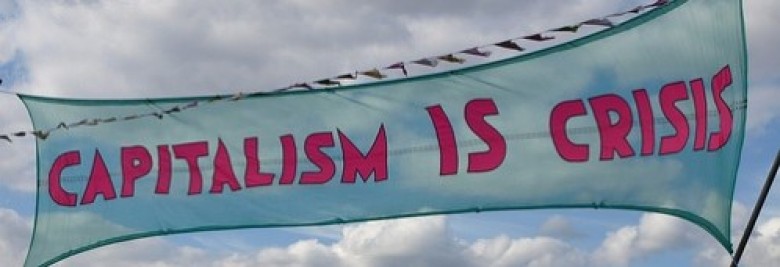
World Social Forum
CONTEMPORARY SOCIAL MOVEMENTS AND THE SOCIAL FORUM PROCESS: FROM THE GLOBAL TO THE LOCAL
June 21, 2010
General Lectures 100 and Mangoongian 150 and 151
Wayne State University
Detroit, MI
http://irows.ucr.edu/conferences/ussf10conf/ussf10conf.htm
Program Schedule
9-10:30: Session 1: The Significance of the World Social Forum Process
Moderator: Jackie Smith, University of Notre Dame
David Fasenfest (Sociology, Wayne State University and editor, Critical Sociology), Opening Remarks
Christopher Chase-Dunn (Sociology & Institute of Research on World Systems, UC-Riverside), “The New Global Left and the World Revolution of 20xx”
Lauren Langman (Sociology, Loyola University at Chicago), “Globalization from Below”
Francis Shor (History, Wayne State University), “The World Social Forum as Utopian Alternative”
10:40-12pm: Session 2 (concurrent): Organizing and Decision-making within the Social Forum Process
Moderator: Juliann Allison (Political Science, UC-Riverside)
Peter J. Smith (Athabasca University) and Elizabeth Smythe, Concordia University, College of Alberta), “Academic Disconnections? Social Scientists, Faith Groups and Transnational Activism: The Case of the World Social Forum”
Nicole Doerr (Sociology, Free University, Berlin), “Decision-making in multilingual groups? Comparative impressions from the European Social Forum”
Scott Byrd (Sociology, UC-Irvine, Nicolas Haeringer, http://www.mouvements.info, http://www.m-e-dium.net, Mallory Knobel, May First / People Link, National Technology Coordinator, USSF), “Technological Resources and Social Forum Organizing”
Jeffrey S. Juris, Erica Bushell, Meghan Doran, Mathew T. Judge, Amy Lubitow, Lauren Nicoll, and Chris Prenner (Anthropology & Sociology, Northeastern University), “From Boston to Detroit: Tracing Grassroots Mobilization to the 2010 United States Social Forum (USSF)”
10:40-12pm: Session 3 (concurrent): Do Social Forums Challenge or Reproduce Social Inequalities by Race, Nativity, and Nation?
Moderator: Ellen Reese (Sociology, UC-Riverside)
James Love (Sociology, UC-Riverside) “Global Racism: Connecting The Local to The Global in USSF and WSF Meetings”
Rose Brewer (African-American and African Studies, University of Minnesota and founding member of AfroEco), “Resisting Racism and the USSF: Possible or Not?”
Janet Conway (Sociology, Brock University), “Is the Global Justice Movement Colonial? A Study of Indigenous Positionality at the World Social Forum”
David W. Everson (Political Science, UC-Riverside), “An Indigenous Voice? The Indigenous Movement, Representation, and the Social Forum Process”
12-1:10pm: Lunch break (sponsored by Critical Sociology)
1:10-2:30pm: Session 4 (concurrent): Who Participates and for What?
Moderator: Juliann Allison (Political Science, UC-Riverside)
Mark Herkenrath (University of Zurich), Wolfgang Stuppert (Social Science Research Center Berlin), Dieter Rucht (Social Science Research Center Berlin), “Who participates? Socio-demographic and Political Characteristics of European Social Forum Participants”
Gary Coyne, Jesse Fletcher and Preeta Saxena (Sociology, UC-Riverside), “From Recruitment to Participation: Bridging the Gap between Differential Recruitment and Collective Action”
Anthony Roberts (Sociology, UC-Riverside), “The U.S. Social Forum and the U.S. Class System: Local-Global Orientation of Participants and Social Movements”
1:10-2:30pm: Session 5 (concurrent): Social Movements and the Social Forum Process
Moderator: Christopher Chase-Dunn (Sociology, UC-Riverside)
Elizabeth Schwarz and James Love (Sociology, UC-Riverside), “The Internet and the US Social Forum: Tracing Connections and Demographics of the Environmental Movement”
Elena Shih (Sociology, UC-Los Angeles), “Globalizing Morality: The Transnational Moral Economy of Women’s Work in the Anti-Trafficking Movement”
Edwin Elias (Sociology, UC-Riverside), “Immigrant Rights in the U.S. Social Forum: Role and Impact.”
2:40-4:20pm: Workshop Training #1: “Doing Collective Ethnography at the 2010 U.S. Social Forum,” Jackie Smith (Sociology, University of Notre Dame) and Jeffrey S. Juris (Anthropology & Sociology, Northeastern University)
4:30-5:30pm: Workshop Training #2: “Doing Survey Research at the 2010 U.S. Social Forum,” Juliann Allison (Political Science, UC-Riverside), Christopher Chase-Dunn (Sociology, UC-Riverside), Ellen Reese (Sociology, UC-Riverside)
This conference is co-sponsored by the Center for Peace and Conflict at Wayne State University, the Political Economy of World-Systems section of the American Sociological Association, the journal Critical Sociology, the Program on Global Studies at the University of California-Riverside, the Institute for Research on World-Systems at the University of California-Riverside, the Global Studies Association, the World Society Foundation and Sociologists Without Borders.
Professor David Fasenfest, Department of Sociology, Wayne State University
Editor, Critical Sociology http://crs.sagepub.com
Series Editor, Studies in Critical Social Science, http://www.brill.nl/scss
Posted here by Glenn Rikowski
The Flow of Ideas: http://www.flowideas.co.uk
MySpace Profile: http://www.myspace.com/glennrikowski
Cold Hands & Quarter Moon Profile: https://rikowski.wordpress.com/cold-hands-quarter-moon/
Cold Hands & Quarter Moon at MySpace: http://www.myspace.com/coldhandsmusic
The Ockress: http://www.theockress.com
Wavering on Ether: http://blog.myspace.com/glennrikowski
Rikowski Point: http://rikowskipoint.blogspot.com













